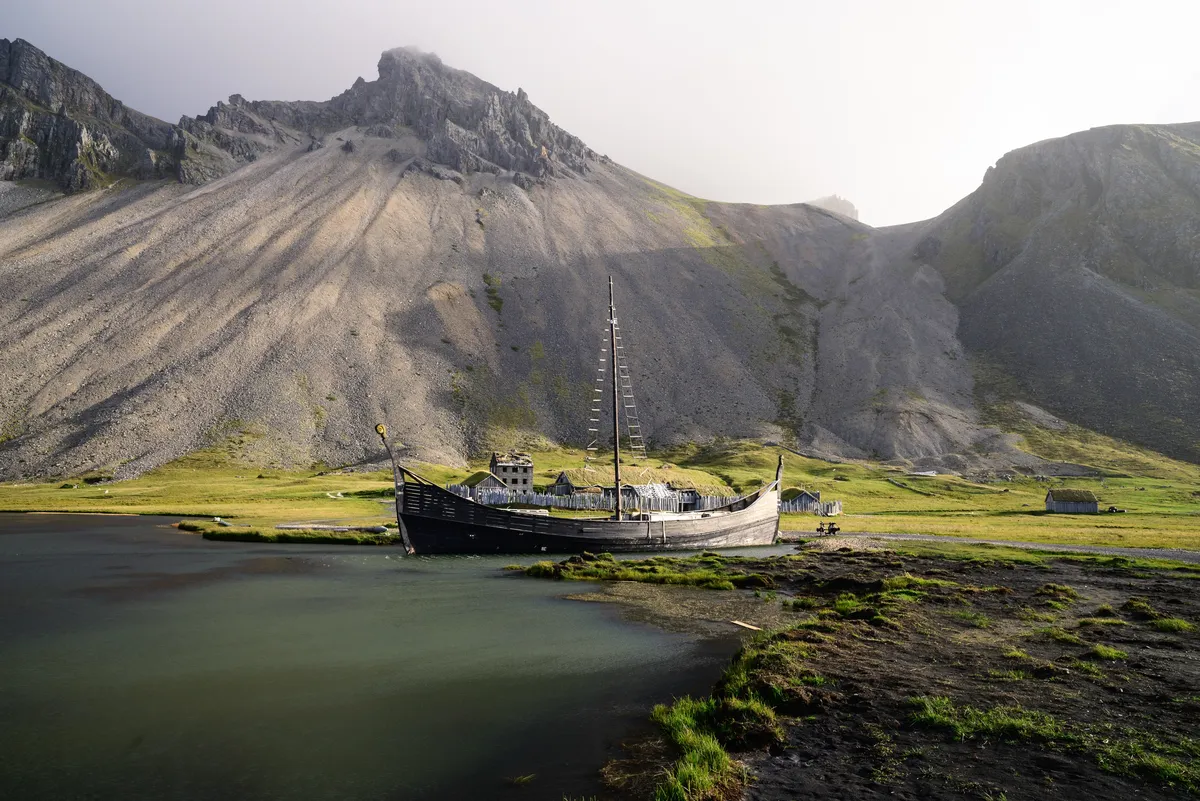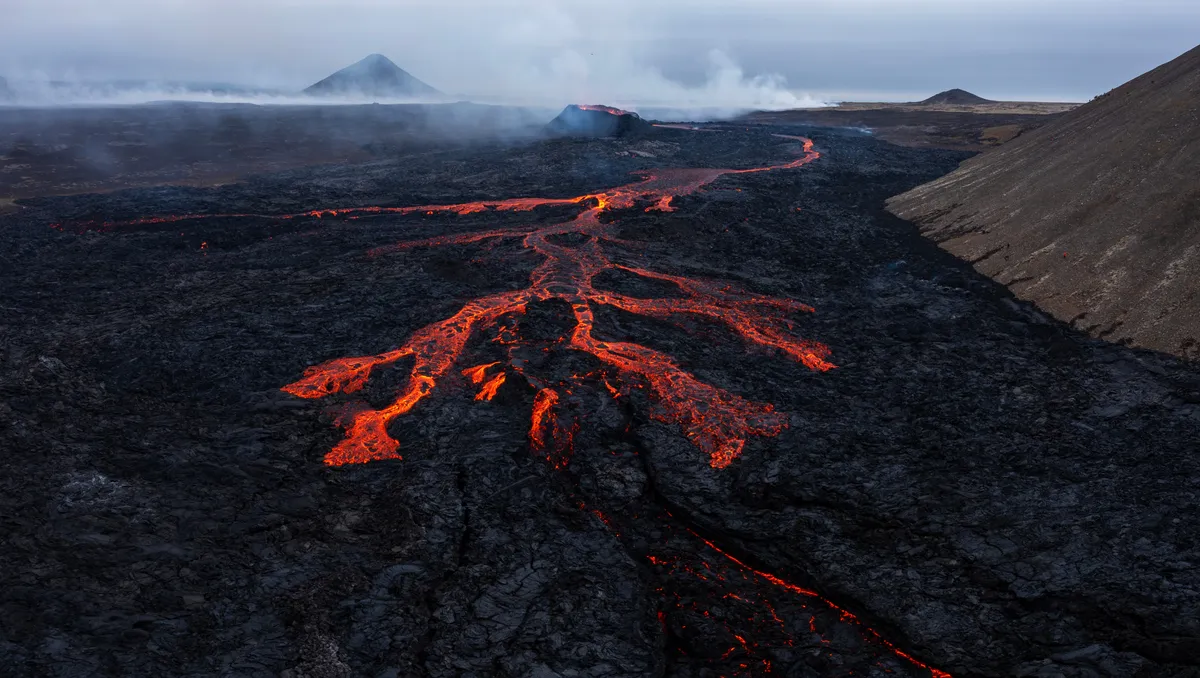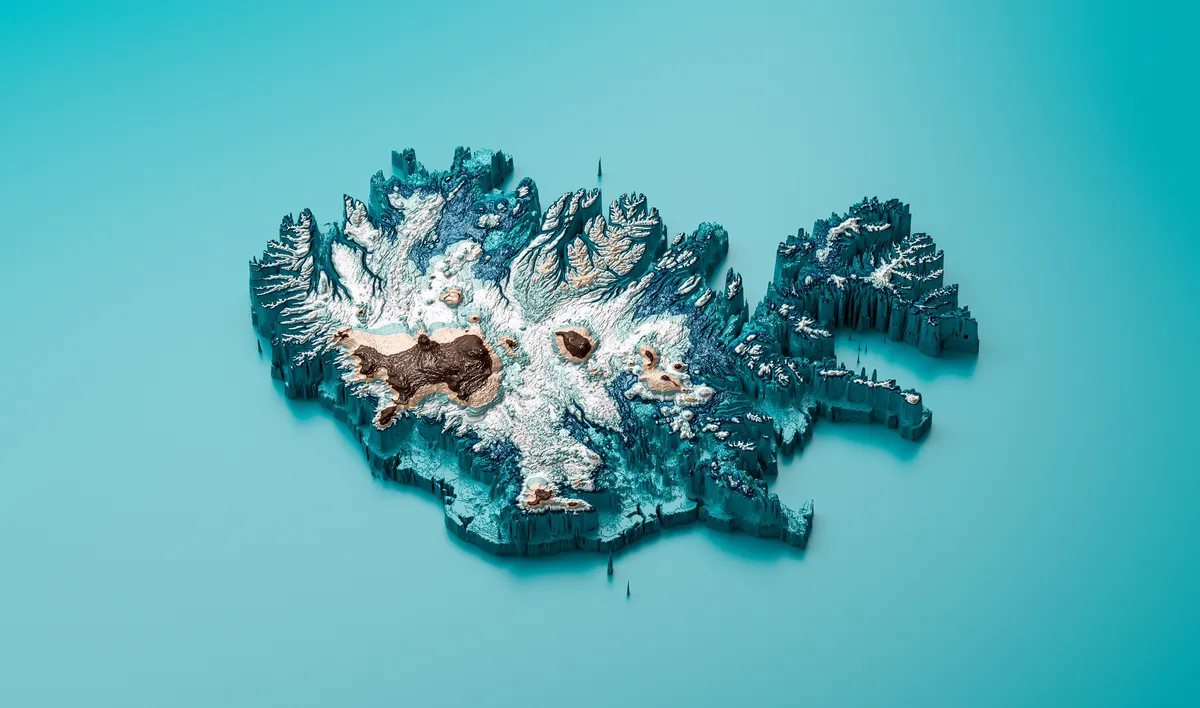Anyone who knows anything about Iceland knows that our history is pretty colorful, and when it comes to the origin story of Iceland’s name, it’s no different. Also, as with so much of our history, it can also often be impossible to discern where fact and legend intersect (but what’s a good story without some embellishment, right?).
So, if you’ve ever wondered why Iceland is called Iceland, then read on. You might be surprised to learn how Iceland got its name.
Origins of Iceland
It is said that a Norseman from Norway called Naddoddur Astvaldsson was the first to discover Iceland. As he looked at the snow-capped mountains, he named the country Snæland (aka Snowland).
Thereafter, a Swedish Viking named Gardar Svavarsson came to the island. After experiencing a winter in northern Iceland, you would’ve at least expected him to be the reason why Iceland was named Iceland, but alas, he instead opted to call it Gardarsholmur (aka the Isle of Gardar), which, you guessed it, means that he named the entire country after himself.

Why is Iceland Named Iceland?
It’s clear that the story of how Iceland was named has many twists and turns (and even some backward and forwards). But the story of how Iceland became known as Iceland (and as is captured in The Book of Settlements) starts with a man named Hrafna-Floki Vilgerdarson.
He was a Norwegian Viking who sailed to Iceland with his family in the hopes of settling down (and, no doubt, score himself a private island). It is believed that the name Hrafna-Floki or Raven-Floki was because he brought three crows along with him to aid him in his journey. According to lege…we mean history, Hrafna-Floki went ashore in 865 AD in the Vatnsfjördur Fjord’s bay on the Westfjords Peninsula’s south side.

Today, his house’s ruins near the Brjanslækur pier can still be found. But Hrafna-Floki and his family’s stay on the island was short-lived. There is debate regarding whether they simply didn’t know about the extreme winter conditions or were so overwhelmed with the staggering amount of fish in the fjord that they simply “lost track of time” from all the work to be done.
Either way, winter came, and Hrafna-Floki wasn’t prepared at all. All his animals died, and the family decided to leave. Although there are various versions of what happened next, the gist of it is that Hrafni-Floki looked at all the ice covering the country and named the country Island (aka Iceland).
But as most visitors to the island know, Iceland has a way of creeping into your heart, and Hrafhha-Floki and his family later returned (much better prepared) and made Iceland their permanent home.

Sifting Through Myths and Legends
There is a good chance that only some of the elements of the above stories are actually true. Although these origin stories have been debated by experts for many years, they were officially challenged in 2000 by an academic named Aegir Geirdal. According to his research, the Irish monks (aka Papar) were already living on the island long before the Norse settlers (who, for the record, actually ended up chasing the Irish monks away).
Still, their influence can still be found all over the island, such as Papey Island, which lies off the coast of Southeast Iceland. So, when one goes down the rabbit hole of the Irish monks in Iceland, one comes across the tale of St. Brendan. It is said that he came to visit the island during the 6th century. During his visit, he met up with the Anchorite Poll (aka Paul), who had already been living in Iceland for the past 60 years.
St. Brendan was completely enamored by Poll and his passion for and stories about this beautiful country. He was so enamored, in fact, that he fell to his knees and declared the country a holy place before naming it after his lord and savior, Jesus, which is Is(s)u in old Gaelic. To further substantiate this theory and that the name Iceland actually doesn’t have anything to do with the climate, weather, or some of our icy natural wonders here on the island, one can take a look at the French and German languages.
If indeed Iceland has anything to do with actual ice, the country would’ve been called Pays de Glace and Eisland, rather than Islande and Island as it is today. But, there’s just one snag when it comes to the Irish monk’s theory: there is no actual archaeological evidence that they were here.

All in the Name of Fun
Icelanders are acutely aware of the various theories and debates doing the rounds, so to poke a bit of fun at the entire situation, Iceland tourism jumped on the bandwagon. It launched a marketing campaign in 2012, during which the public was encouraged to submit their own proposals for “new” names for the country via the Inspired by Iceland website.
Unfortunately, it soon became apparent that some didn’t get the joke and actually thought Iceland was really in the market for a new name. The campaign did get quite a few funny submissions, though, with suggestions like Endless Night Land and Best Country to Grow a Beard Land.
So, Where Did Iceland Get its Name?
To a certain extent, it’s a bit like the country is on trial; you’ll need to consider all the stories along with the evidence, make up your own mind, and join a specific side of the debate. Or, you can rent a motorhome in Iceland, go on a road trip adventure around the island, and partake in coming up with your own names.
Although you won’t be able to officially submit your suggestions anymore, it can be great fun for the whole family and a few laughs among friends. But irrespective of how Iceland really got its name, a trip to the Land of Fire and Ice is guaranteed to leave you with incredible memories that’ll last a lifetime!


